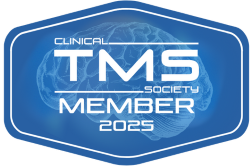
If you’ve ever struggled to find the right mental health medication, you’re not alone. Many people cycle through prescriptions, only to discover that a certain drug causes unpleasant side effects, doesn’t work as expected, or interacts poorly with another medication. It can feel discouraging—and it’s often a process of trial and error.
But what if your DNA could help change that?
Thanks to advancements in pharmacogenomics—a field that examines how genes influence your body’s response to medications—mental health care is becoming more personalized than ever. Relief Mental Health offers genetic testing at select locations to help guide medication choices, making it easier to create treatment plans that truly fit.
Let’s break down how this works, why it matters, and what it means for your mental health journey.
What Is Pharmacogenomic Testing?
Pharmacogenomic (PGx) testing is a tool that helps providers understand how your genetic makeup may affect your response to certain medications. It’s based on the idea that everyone metabolizes drugs differently—mainly because of specific genetic markers that influence how medications are absorbed, broken down, and cleared from your body.
One key family of genes involved in this process is the cytochrome p450 (CYP450) group. These genes play a major role in drug metabolism. Variations in these genes can determine whether a person is a rapid metabolizer (processing drugs too quickly for them to be effective), a poor metabolizer (leading to drug buildup and potential side effects), or somewhere in between.
In mental health, pharmacogenomic testing is beneficial when prescribing medications for diagnoses like:
- Depression
- Anxiety
- Bipolar disorder
- ADHD
- Post-traumatic stress disorder (PTSD)
Analyzing your unique genetic traits allows providers to make more informed decisions. It reduces the risk of side effects, avoids harmful drug interactions, and ultimately improves treatment outcomes.

How It Works
Two of the most commonly used tests in psychiatric pharmacogenomics include:
GeneSight Psychotropic Test
This test examines how your genes may affect your response to commonly prescribed mental health medications. The report groups medications into categories: those likely to be effective, those requiring dosage adjustments, and those that may cause significant side effects.
Tempus Pharmacogenomic Testing (PGx)
Similar in approach, Tempus provides advanced genetic analysis and a user-friendly report that supports providers in tailoring treatment to each patient’s DNA profile.
These tests are quick and noninvasive. In most cases, it’s just a cheek swab. The sample is sent to a lab, and the results are available in about a week. Your provider can use the insights to fine-tune your medication management strategy.
Better Outcomes, Less Guesswork
The proper medication helps to relieve symptoms and restore quality of life. When a treatment plan works, you feel more like yourself. You can focus, sleep better, connect with others, and manage daily responsibilities more easily.
But when medications don’t work—or worse, cause unexpected side effects—it can feel like a setback. For people already navigating the emotional weight of mental health diagnoses, that experience can be frustrating and discouraging.
Genetic testing helps reduce this guesswork. It doesn’t guarantee the perfect medication on the first try, but it offers vital personal information that can improve treatment outcomes. For example:
- Someone with depression who hasn’t responded to multiple antidepressants may discover they’re a poor metabolizer of certain SSRIs.
- A patient with Attention Deficit Hyper activity Disorder (ADHD) might find out they need a different dose of a stimulant due to faster drug clearance in their system.
- Someone managing both anxiety and chronic health conditions may learn which medications pose a lower risk of interaction with their existing prescriptions.
These insights allow providers to create more effective, personalized care plans, ones that are rooted in both science and the patient’s lived experience.
The Science Supporting Genetic Testing in Psychiatry
A growing body of research supports the value of pharmacogenomic testing in mental health care. A 2024 systematic review published by the National Institutes of Health (NIH) found that using genetic testing to guide antidepressant therapy improved symptom response and reduced adverse effects compared to standard prescribing methods.
Another study showed that PGx-guided treatment for major depressive disorder was associated with improved remission rates and fewer medication changes over time.
While more research is ongoing, the message is clear. Precision medicine can transform how we approach mental health medications, making care more effective, efficient, and aligned with each person’s biology.
Is Genetic Testing Right for You?

Genetic testing is invaluable for individuals who:
- Have tried multiple mental health medications without success
- Experience significant side effects from common prescriptions
- Take numerous medications and want to understand potential drug interactions
- Want to make a more informed decision before starting a new medication
It’s also important to understand that availability may vary by clinic and provider. If you’re interested, speak with your psychiatric provider to see if pharmacogenomic testing is part of your treatment options.
Protecting Your Personal Information
Naturally, many people wonder about the privacy of their genetic data. Reputable testing providers follow strict guidelines to protect your personal information and ensure compliance with federal laws like the Genetic Information Nondiscrimination Act (GINA). Test results are used solely to guide your care and are not shared without your consent.
A Smarter Path to Treatment
Mental health care should be as unique as you are. Pharmacogenomic testing doesn’t replace your provider’s expertise, but it gives them another powerful tool to support you.
Instead of cycling through medications blindly, your treatment plan becomes more targeted. You and your provider can make decisions based on how your body’s metabolism interacts with medications. That means fewer setbacks, more confidence in your care, and a faster path to feeling better.
Learn More About Your Options
Ready to take the guesswork out of your mental health treatment? Relief Mental Health offers pharmacogenomic testing at select clinics to help tailor your care based on how your body processes medication. This testing is part of our commitment to evidence-based, personalized care. It’s one of the many tools we use to help patients feel better and faster.
Let’s build a plan that fits your biology, history, and goals. Contact Relief Mental Health to learn more about whether genetic testing is available at a clinic near you—and how it can support your overall mental health treatment.


